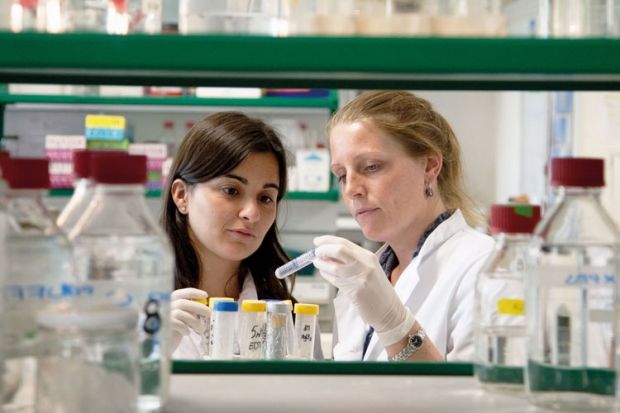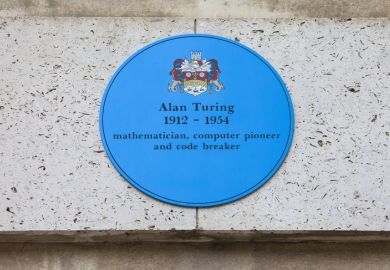Source: Getty
If integrity is at risk…: suspected research misconduct ‘must be investigated’
The “weak” response of a high-profile journal and a national ethics committee to the alleged fabrication of data in a retracted 2009 paper signals an “impending crisis in research integrity”, an academic has claimed.
The paper, published in Science, described a “reactome array”: a method by which all of the enzyme activity in a cell could supposedly be analysed. As previously reported in Times Higher Education, the paper was greeted with scepticism and was retracted in 2010 after an investigation by the ethics committee of the Spanish National Research Council, which funds the institute employing one of the paper’s corresponding authors, Manuel Ferrer.
Last month, Thomas Hettinger, a research associate at the University of Connecticut Health Center, published a paper claiming that his own analysis of the original article’s associated data found “no evidence” that it was genuine.
His paper, “Research integrity: the experience of a doubting Thomas”, says: “Fraudulent research diminishes honest research and undermines public trust in science…The parties responsible for misconduct should be identified and innocent parties should be exonerated.”
But he says the retraction notice “restated the paper’s main conclusions as if they were fact”, which was “a disservice to researchers who raised substantial and legitimate concerns, and is tantamount to blaming the victims”.
The paper, published in biomedical journal Archivum Immunologiae et Therapiae Experimentalis, adds: “The only real question is who is responsible for the fraudulent data, which can only be answered by an onsite investigation at the institutions involved.” Yet there was “no evidence that a formal charge of research misconduct was ever made”.
“There have been numerous other cryptic retractions of high-profile papers riddled with fictitious data. The ‘reactome array’ episode has exposed pervasive research misconduct and a developing credibility crisis in science journalism,” the paper concludes.
In his response, also published in Archivum, Pere Puigdomènech, the leader of the Spanish ethics committee and a research professor at the research council’s Centre for Research in Agricultural Genomics, says the committee “reached conclusions very similar to those indicated by Dr Hettinger”. It recommends disciplinary procedures be applied, but the status of the research council’s researchers as public employees “does not favour any investigation of misconduct” because scientific fraud “is not considered in the statute of civil servants”.
A spokeswoman for Science said that the journal’s then editor-in-chief, Bruce Alberts, pushed the council to investigate further, but was told that Spanish law made it impossible to reopen the case unless new information became available.
“Science is not an investigative body. Our hope would be that [the research council] would reopen the investigation if indeed the data in [Dr Hettinger’s paper] is new critical information,” she said.
Dr Ferrer, a researcher at the Institute of Catalysis and Petrochemistry in Madrid, and his co-corresponding author, Peter Golyshin, chair of environmental genomics at Bangor University, declined to comment.
A spokeswoman for Bangor said it was “willing to consider” Dr Hettinger’s analysis. “However, the university thoroughly investigated in 2010 the contribution [of Dr Golyshin but] found no evidence of any misconduct as far as his research was concerned,” she added.
Register to continue
Why register?
- Registration is free and only takes a moment
- Once registered, you can read 3 articles a month
- Sign up for our newsletter
Subscribe
Or subscribe for unlimited access to:
- Unlimited access to news, views, insights & reviews
- Digital editions
- Digital access to THE’s university and college rankings analysis
Already registered or a current subscriber? Login





